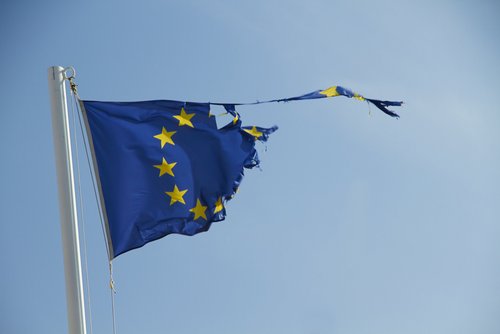The United Kingdom’s exit from the European Union is a historic break and a tremendous loss for everyone concerned. The British will lose importance on the stage of world policy and, finally, their access to the world’s largest single market. At the same time, the European Union will have to accept the loss of its most important financial centre and, with it, the EU’s gateway to the Commonwealth and the United States.

There are only losers
National borders are currently losing their economic significance, and value chains are becoming globally interconnected. Thus, the UK’s exit from the EU is a revolt on the part of the British against the megatrends of globalisation and digitalisation. On the other hand, the loss of economic and political diversity resulting from the withdrawal of the UK will weaken the European Union in its goal of influencing the increasingly digital world economy.
By returning to an isolated coexistence of nations, the countries are not only squandering Europe’s political capital but also fundamental economic prospects for the future. It’s now up to EU representatives to ensure that Brexit doesn’t become a precedent for other EU countries. In other words, the time of cherry picking is over for grumblers and dissenters; the EU now has to dig in its heels. As for the EU’s future institutional structuring, it is now abundantly clear that the “ever-closer union” is not a path that everyone is willing to take. What’s most important is that the policymakers in the member states stop blaming the EU for their own mistakes. Ultimately, it’s the support of the individual countries which will make or break Europe’s credibility.
But even if Brexit is a hard hit to the European Community, the acute economic impact will be manageable. The move is not expected to unleash a new euro crisis. The reforms in countries affected by the euro crisis are well enough advanced; the finance system has built up a risk buffer; and the withdrawal of the UK hasn’t come as a complete surprise. While an appreciation of the euro over the pound will diminish Europe’s competitiveness, the impairment will remain within a range that can be offset by the economy.
More on the topic
Not so Different?: Dependency of the German and Italian Industry on China Intermediate Inputs
On average the German and Italian industry display a very similar intermediate input dependence on China, whether accounting for domestic inputs or not.
IW
China’s Trade Surplus – Implications for the World and for Europe
China’s merchandise trade surplus has reached an all-time high and is likely to rise further. A key driver appears to be a policy push to further bolster Chinese domestic manufacturing production, implying the danger of significant overcapacities.
IW